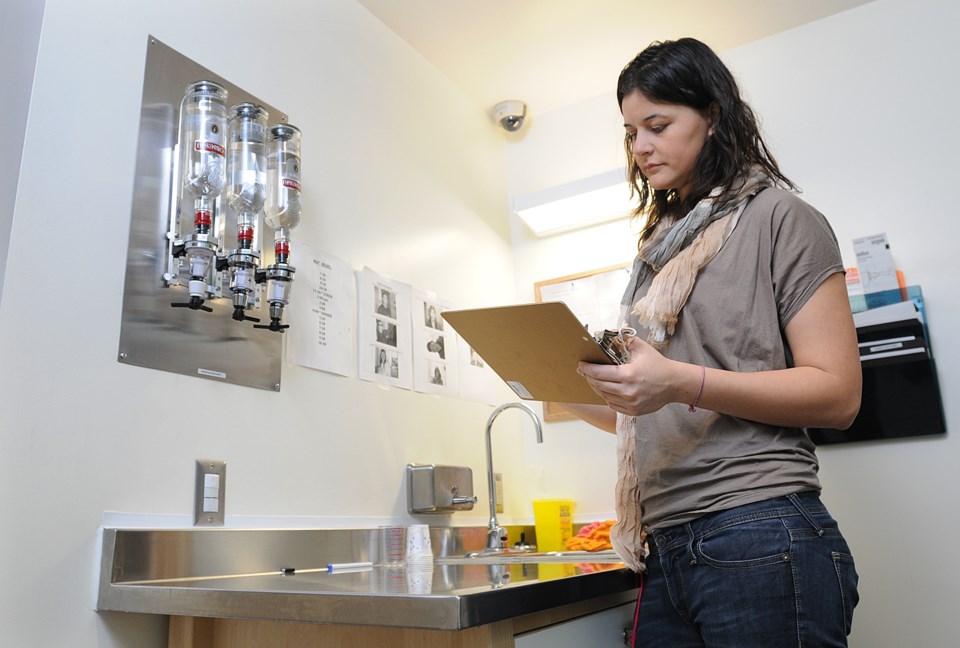Severe and chronic alcoholics seem to benefit from receiving housing and regular doses of alcohol, a new study has found, and communities appear to save money due to decreases in police and hospital incidents.
These findings hail from Canada’s first controlled study of a managed alcohol program, or MAP, in Thunder Bay, Ont. by the Centre for Addictions Research of B.C.
CARBC published a qualitative and quantitative evaluation of a MAP in Vancouver in December that informed the Thunder Bay study.
Vancouver Coastal Health and PHS Community Services started a MAP at the Station Street social housing building near Main Street and Terminal Ave. in October 2011.
Eight participants were provided one drink per hour up to a maximum of 12 per day. CARBC’s study followed seven heavy drinkers, four of whom had drunk non-beverage alcohol such as mouthwash, hand sanitizer or rubbing alcohol, up to nine months after the program started.
CARBC noted participants maintained their housing, reported greater wellbeing and mental health, improved relationships and access to services, a reduction in the frequency of non-beverage alcohol consumption and reductions in social, financial and some physical alcohol-related harms. Social and cultural programming is provided at Station Street.
Researchers also found that self-rated physical health declined for most participants and after six months, liver function deteriorated for some and alcohol consumption increased, possibly due to public drinking being more prevalent in the summer months.
Bernie Pauly, associate professor in the School of Nursing and a researcher with CARBC, which is based at the University of Victoria, said participants might have reported worse health as they became more concerned about their health.
She said a national controlled study will explore concerns about liver function and that people in MAPs need to be clinically monitored.
“And so then if you see changes like that, you can have a discussion with the person and determine do they need a break,” Pauly said. “It’s not harm reduction only. It’s harm reduction and how does that complement other approaches to treatment.”
CARBC secured funding for a national controlled study on MAPs at Station Street, in Thunder Bay, Ottawa, Toronto and Hamilton. Results for Thunder Bay were reported earlier this month.
The Thunder Bay study followed 18 MAP participants, living in housing that’s more communal than the self-contained rooms at Station Street, and 20 people in a control group of extreme alcoholics who were homeless and staying in shelters.
Most of the Thunder Bay participants retained their housing, reported eating better and experienced improved mental health and wellbeing. Pauly said hospital admissions were reduced by 37 per cent, emergency room visits by 54 per cent and police contacts for incidents such as public intoxication by 40 per cent.
She said results from both programs reveal MAPs combined with housing provide stability and choice.
“What [people in Thunder Bay] really got from the program was housing, a sense of home, their health and hope for future,” she said. “They could start to see a different kind of future for them and make different choices.”
Pauly expects CARBC to complete the national study in two years.
crossi@vancourier.com



